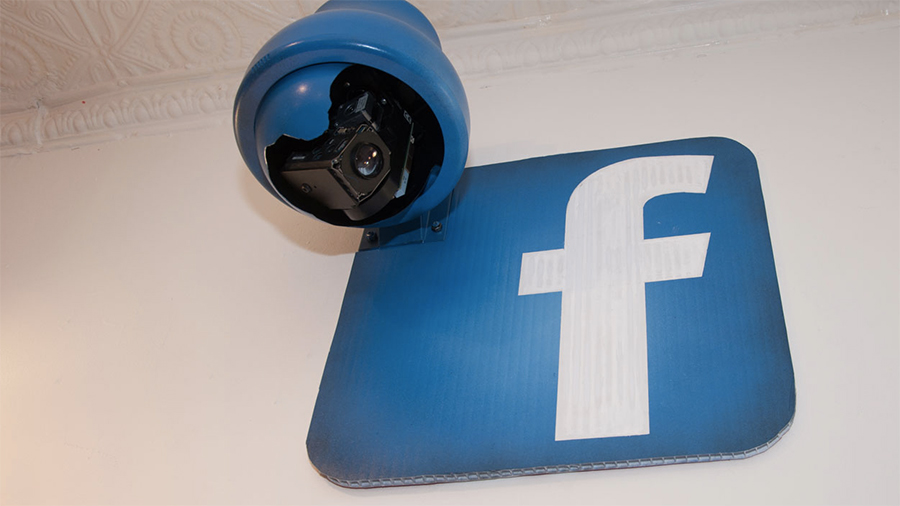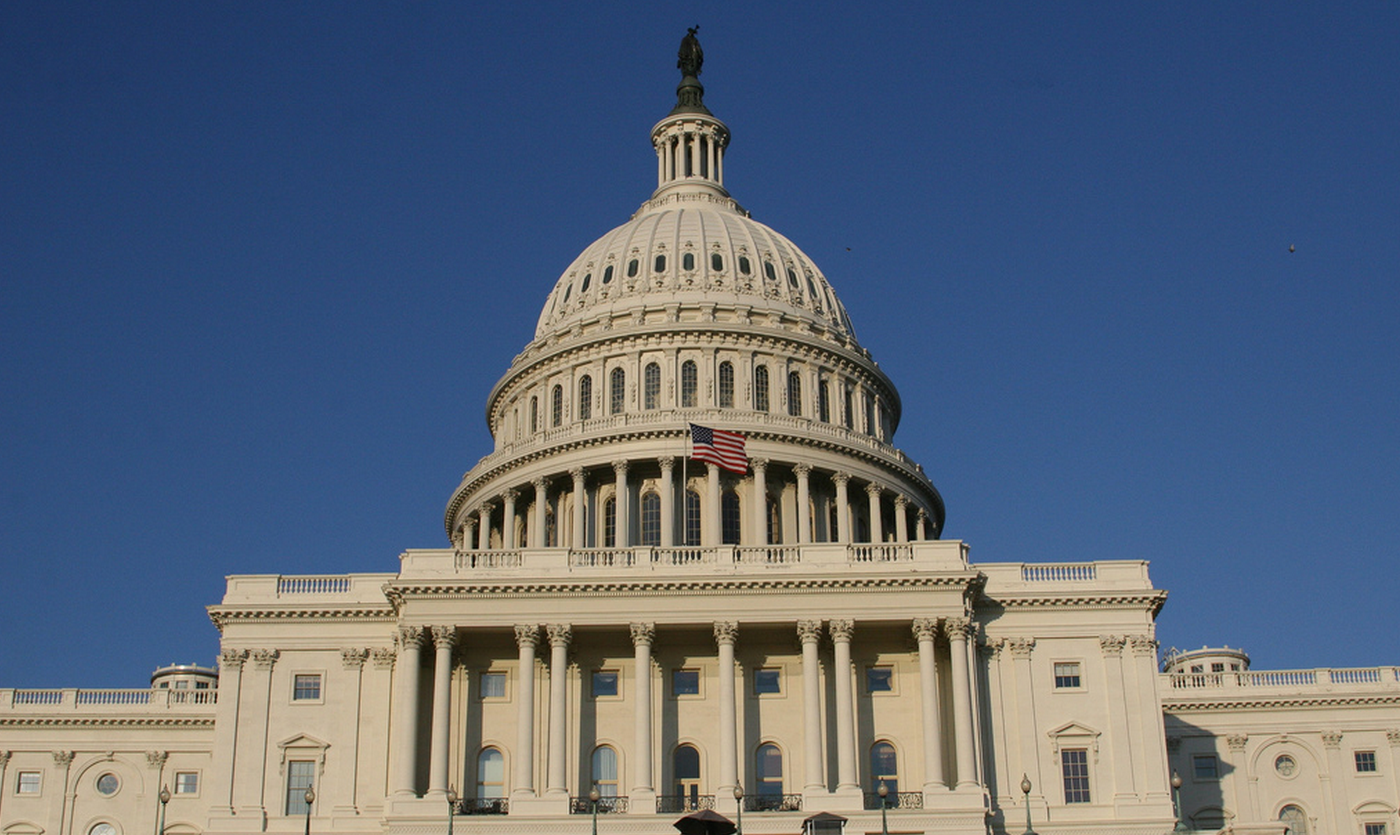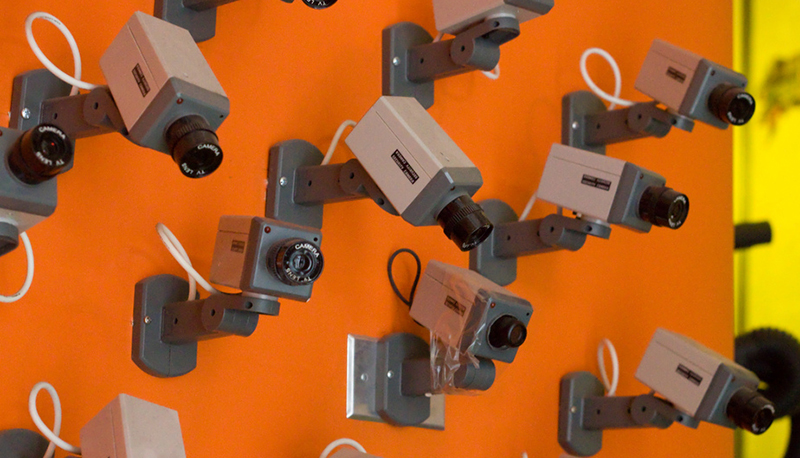The National Security Agency (NSA) became a target for ire after the public learned in 2013 that it had been scooping up millions of Americans’ phone records without warrants or disclosure, and holding on to all of them. A change in the law in 2015 significantly changed the way and volume in which the NSA is legally authorized to scoop up data… but the net it casts is still pretty broad, pulling in 151 million phone records last year. [More]
surveillance

Lawmakers Ask FCC To Seek Fixes For Phone Network Vulnerabilities
When you think about phone security, you’re probably thinking about the apps on your phone, who’s listening in on the call you make, or perhaps even the metadata you leave behind. You’re probably not thinking about the national and global network of fibers, cables, and businesses that makes your phone call physically possible. But that network has vulnerabilities, and two lawmakers want the FCC to protect consumers from them. [More]

Facebook Tells Developers To Quit It With The “Surveillance” Already
Your phone knows where you are, because it’s there with you. And when you use social media to post photos and talk with friends about an event you’re at, that’s data that can be scraped and used… including by cops who want to figure out what you’re up to. But not so fast, Facebook now says: If you want to build an app for surveillance, you’re going to have to do it without their data. [More]

Researchers Figure Out How To Put Invisible Backdoor In Common Internet Encryption
Even consumers who aren’t necessarily very technically-minded have at least a vague sense that an encrypted site is safer to use than one that isn’t. But encryption, alas, is never a permanent cure-all. And that’s why it’s troubling that new research has found it’s easier than anyone thought to put a backdoor into internet encryption that could let any big, surveillaince-minded entity (good morning, NSA) have a listen. [More]

Equipment To Spy On Citizens Is A Surprisingly Popular Export
It doesn’t require any super-special equipment to spy on one’s own citizens: the items needed to do so are widely available and pretty affordable compared to other law enforcement and military gear. Yes, spy equipment is a popular U.S. export, and governments out to keep very, very close tabs on their residents are the customers. [More]

Senate Fails To Approve Bill Allowing FBI Searches Of Web, Phone Records Without Court Order
Earlier this week, in response to the recent massacre of 49 people at Pulse nightclub in Orlando, Senators John McCain of Arizona and Richard Burr of North Carolina introduced a controversial piece of legislation that, if approved, would allow federal law enforcement to perform searches of suspects’ electronic and online records without a traditional court order. However, this morning the Senate narrowly failed to approve the bill. [More]

Senators Introduce Bipartisan Bill To Limit Law Enforcement’s Rights To Hack Stuff
A group of Senators has announced today that they are introducing a new bill into the Senate designed to prevent mass hacking of Americans’ digital devices. But the lawmakers aren’t targeting shadowy collectives or foreign nationals with their proposed legislation; they’re seeking to limit the scope of actual Federal agencies’ powers. [More]

Cruise Ship Norovirus Season Begins: 252 Passengers Sick On Ship Docked In Maine
When the cruise season kicked off in Portland, ME this weekend, it didn’t exactly get off to a great start. The first ship to dock in the city’s port is under surveillance for norovirus after more than 250 passengers reportedly became sick. [More]

Controversial Cybersecurity Bill Makes It Into Omnibus, Will Basically Be Law Any Minute Now
We are rapidly running out of 2015 left to spend, and so the two houses of Congress have been racing to pass an omnibus spending bill that will keep the government funded and the lights on. Because that bill is a must-pass piece of legislation, all kinds of crap has been added, taken away, and snuck back in as we come down to the wire. Among the other bills that have been tacked on is a controversial piece of cybersecurity legislation that has privacy and consumer advocates worried all around. [More]

Privacy Advocates Concerned As Senate Approves Controversial Cybersecurity Bill
Despite previous failures, Congress just keeps on churning through bills that propose to enhance digital security at the cost of digital privacy. The latest in the series sailed through the Senate with wide approval this week, kicking off another wave of privacy concerns. [More]

Court Rules NSA Phone Data Collection That Is Now Changing Anyway Is Still Legal
After several years of back-and-forth rulings, an appeals court in Washington, D.C. has ruled today that the NSA’s controversial bulk phone data collection program can indeed continue… at least until November, when it gets shut down anyway because Congress changed the law in June. [More]

Court: NSA Bulk Phone Data Collection Program Is Illegal
A federal appeals court has ruled this morning that the NSA’s controversial bulk phone data collection program is in violation of federal law. [More]

Congress Has One Month Left To Change Or Renew Controversial Bulk Phone Data Surveillance Program
It’s been two years since we found out that the NSA has been quietly scooping up basically everyone’s phone records, willy-nilly, without warrants. The revelations of widespread surveillance freaked plenty of people out, but under existing law, the agency has acted legally. To get change, then, you’d need to change the law… and Congress has 33 days remaining in which to do exactly that. [More]

Snooping Sites, Aimless Ads, Sexist Stereotypes: A Look Back At The Week In Tech News
It’s a big, busy world, and even with a smartphone in your pocket at all times it’s hard to read everything written about it in a week. Sometimes, useful info slips through the cracks. So, here are five interesting stories from the world of internet and technology news. [More]





